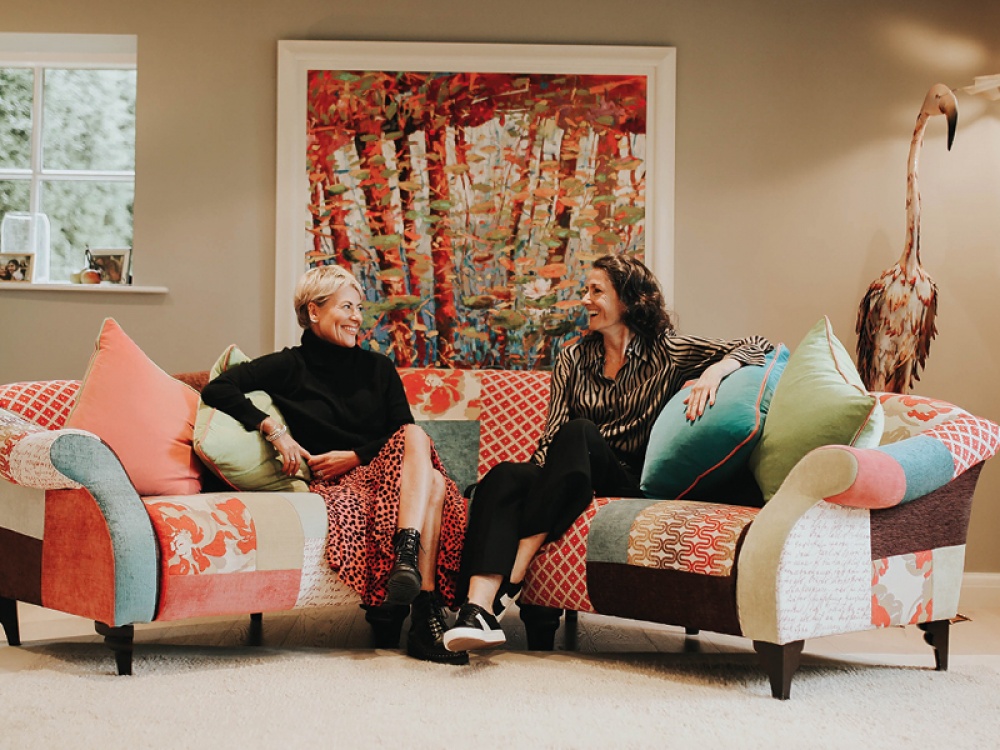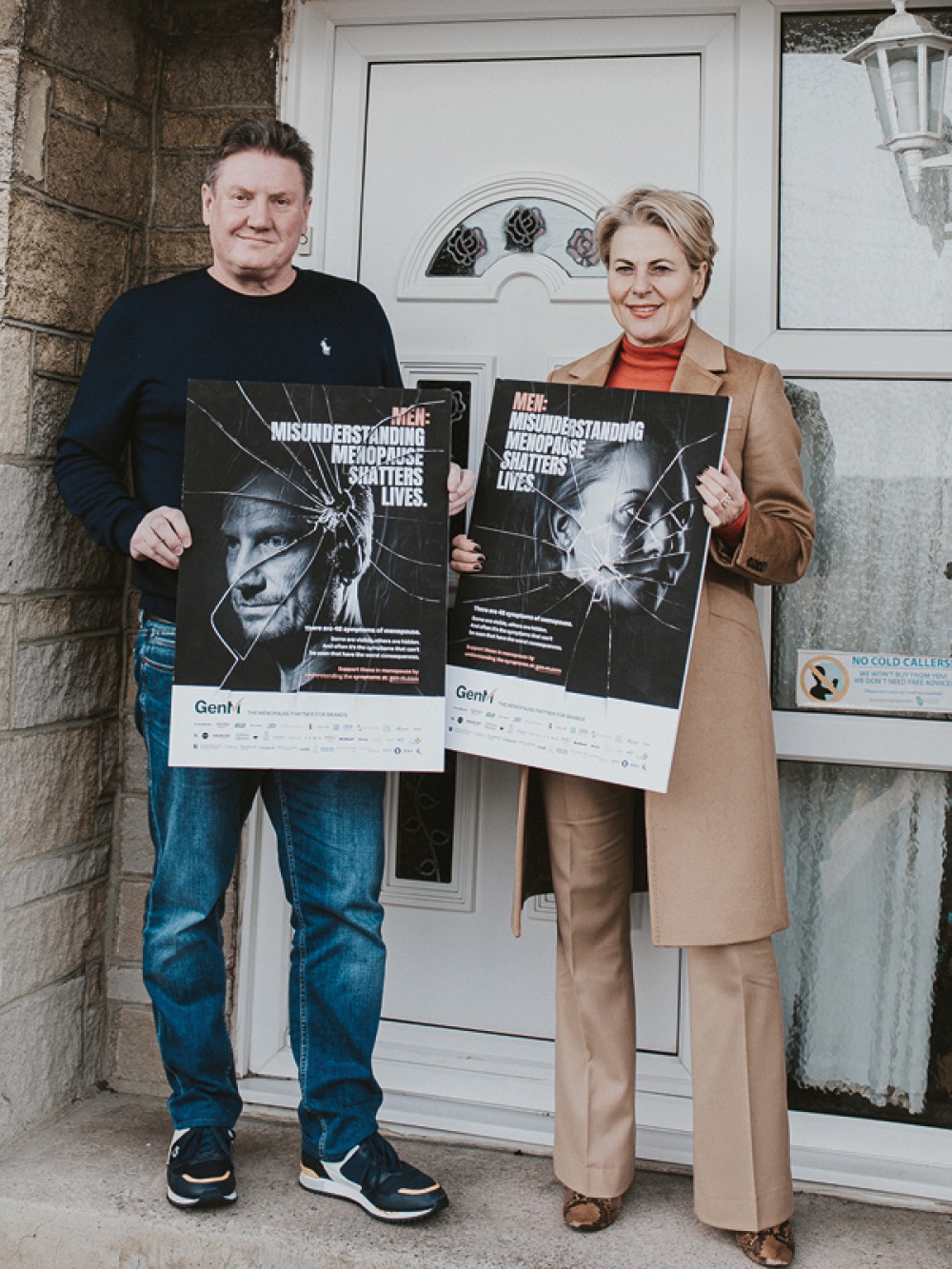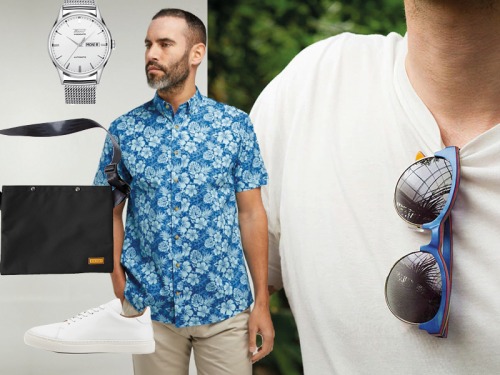Yorkshire Entrepreneur on the Symptoms and Impact of Menopause and How She is Helping Women

Read more: Mind's Top Insights on How To Stress Less
It’s estimated that by 2025, one billion women worldwide will be part of gen M, going through the menopause. There are 48 medical, credible and clinical symptoms of the menopause as identified by GenM, the menopause brand partner. But as their recently commissioned white paper revealed, many women can name only three.
Despite Davina McCall’s recent documentary which aired on Channel 4, if you are ill informed and somewhat in the dark about the menopause you are very much not alone.
This life stage, this transition, typically hits women aged between 45 and 55 and can bring with it a myriad of symptoms from aching joints to disturbed sleep, anxiety, rage and brain fog.
That is not to say all women will get all 48 symptoms or be affected in exactly the same way, however, many, many women suddenly just don’t feel like themselves anymore and crucially they don’t know why.
When we went through puberty, and for those who went through pregnancy and childbirth, there was a plethora of literature, services, support, clearly signposted products, clearly signposted sections in shops and department stores, trained staff to offer support and advice, dedicated websites, internet forums, healthcare advice and support, classes, support groups, courses, references and depictions in TV shows and films, advice and support from friends and family throughout the process.
Notice how many times you read the words ‘advice’ and ‘support’, that’s not lazy writing, that’s heartfelt! I stumbled completely clueless into perimenopause. I am not alone in this. But being and feeling alone in this can have shattering consequences.
GenM recently created the Shattered campaign to help spread awareness of how misunderstanding menopause symptoms can shatter lives.
They did this with the helpful input of bereaved husband David Salmon, from Keighley, West Yorkshire, whose wife took her life as a result of mental health symptoms linked to the menopause.
The Shattered campaign aimed to raise awareness of the invisible symptoms, not just the physical ones, and to call on men and family members across the country to wake up to the very real consequences of the menopause.
GenM’s white paper, The Invisibility Report, explores the resulting, hidden impact this transition, and society’s perceived disregard of it, is having on 15.5 million women in the UK.
Women feeling lonely, invisible, irrelevant and dispensable. This ground-breaking report has shone a much needed spotlight on the issue and has shown unequivocally that women would benefit from the media and press being more vocal about the menopause, society being more open to talking about menopause, friends, family, partners, GPs and workplaces being better informed and supportive, and brands being more inclusive and catering better to menopausal women as employees and consumers alike.

The powerhouse behind GenM, and this report, is Holmfirth-born Heather Jackson. Heather makes me smile by announcing, not long into our conversation, ‘I’m Yorkshire through and through. I am living and breathing Northern. My father is the artist Ashley Jackson. He’s well known for painting Yorkshire in watercolours and my daughter runs a café in Holmfirth. I love this part of the world!’
Heather, who describes herself as a serial entrepreneur, set up GenM with her friend Sam Simister as a direct response to her own experience of being as she puts it, ‘blindsided by perimenopause’.
Like many women, the only answer she could get from a doctor was the suggestion that she was depressed and might like to take antidepressants. ‘It was ridiculous,’ she says. ‘I went from being full of energy, climbing Kilimanjaro, getting to Everest Base Camp, running a company, to suddenly feeling exhausted, flat, not myself.’
Luckily, at this stage, her friend Sam who was a little more clued up pointed out it was more likely to be the transition into menopause than depression. And so, like many of us, Heather turned to the internet for answers, ultimately finding it frustrating.
‘There wasn’t a huge amount of information out there and what I could find seemed to offer such confusing and conflicting advice.’
The same rang true for any attempts to find products that might help. ‘We are busy, time-poor women. We don’t want to be scrambling around at the back of a shop trying to find the supplements, or the nightwear, or the bedding or whatever it is that we need to make our lives easier,’ says Heather. ‘We need some help, some signposting, not to have it all shoved at the back out of the way in the dark, dusty bit of the shop!’
This lack of support, this avoidance of the issue, has even greater ramifications in the workplace. As Heather stresses, and the Invisibility Report highlights, ‘workplaces and employers have a role to play in supporting menopausal women in work – the fastest growing demographic in the workforce today’. It is often the women who are at the height of their careers who are hit so forcefully by this life stage and feel so ill prepared to cope with the changes.
Heather has always cared passionately about supporting women in the workplace. She previously founded and chaired a company dedicated to ensuring gender balance in the workplace.
‘The irony is not lost on me. All the work that went into ‘An Inspirational Journey’ to make sure that women were not held back by that glass ceiling, that they had the same opportunities for progression, and now they are leaving top jobs because they just aren’t getting the support they need,’ she points out ruefully.
’It’s important to remember that the menopause is more than just a workplace or medical issue,’ she stresses. ‘It’s the sum of all parts – it’s a societal issue that affects all of us, either directly or indirectly.
'We all know someone in menopause whether it’s a colleague, friend or family member. But historically the menopause has been either completely ignored or simply swept aside as just a women’s issue.’
However, GenM are fighting hard to make sure that this situation does not continue. They are working with more than 50 large and small brands across industries to help them recognise and respond to the needs of menopausal women, improving signposting to products and services, encouraging responsible workplace policies and promoting accurate and inspiring marketing.
Partners include Royal Mail, Co-op, Next, MPowder, Holland & Barrett and Boots to name but a few, all seeking to drive real change. Boots, in fact, has recently announced that it will cover staff members’ HRT prescription costs.
They have also created an online menopause product and information hub, with a ‘search by symptom’ feature, to make it easier for customers to find helpful items.
Royal Mail has recently launched a menopause awareness campaign to educate employees (including 16,500 female staff of menopause age), whilst the Co-op has released a menopause training handbook for its managers that’s available to the public for free so other companies can learn how to best support menopausal staff.
GenM are pushing for clearer signposting on products too. ‘What we need is a menopause-friendly badge on products,’ Heather explains. ‘Think about products that have vegan signposting on them. It’s clear and it works for the two percent of the world that is vegan. Now we need to do the same for half the population that will experience the menopause.’
And what can we do, as consumers, to help this process along? The GenM website makes clear that those who are experiencing this transition should talk about it. We should normalise menopause in real life conversations and on social media. Share experiences and help break this age-old taboo.
Heather also makes a very shrewd observation about the younger generation of women coming through, who hopefully won’t be blindsided by menopause as this generation has been.
‘Look to all the ways you can get ahead of this; nutrition, lifestyle, self care,’ she says. ‘As I keep being quoted, “you wouldn’t run a marathon in your slippers” – you would join a group, you would gather information, educate yourself, train, listen to advice. Get ahead of it. Talk to each other.’
It is rather wonderful to think that maybe by 2025, in three short years, before the estimated one billion women go through menopause, with the strong voices of women such as Heather Jackson and Sam Simister, Davina McCall, and you, and me coming out and saying ‘I am Generation Menopause’ we might just be able to give the world a gentle shake.







